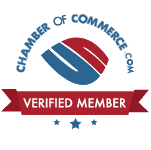Fuel your business growth with Commercial Loan, unlocking financial opportunities for your business success.
Commercial Loan

What is a Commercial Loan?
Commercial Mortgage

A commercial mortgage is a loan secured using a commercial property such as an apartment building, an office block, a warehouse, or a shopping complex. Commercial mortgages are provided by banks and independent lenders, while institutions like pension funds, insurance companies, and private investors provide capital for these transactions.
Commercial mortgages can be fully amortizing, meaning that the principal and interest payments are made every month. These are fully paid off at the end of the loan term. Others involve monthly interest-only payments, while the principle is settled through a balloon payment at the end of the loan term.
Who is it for?
A proprietor with a good credit record looking to finance the acquisition or improvement of property that they’re using for their own business.

Requirements
Best Commercial Mortgage Loan
A credit score above 660.
A down payment of at least a 25%.
A debt-to-income requirement of 1.25.
The Property should be owner-occupied.
Frequently Asked Questions
Commercial Mortgage Loan

What Is a Commercial Loan?
A commercial loan is a type of loan specifically designed for business purposes. It is intended to provide financing for commercial entities, such as companies, partnerships, or corporations, rather than for personal or residential use.
Commercial loans are typically used to fund business operations, expand facilities, purchase equipment, acquire real estate properties, or support other business-related needs. These loans are usually obtained from banks, credit unions, or other financial institutions that offer commercial lending services.
Commercial loans differ from personal or residential loans in several ways:
1. Purpose: Commercial loans are specifically designed to meet the financial needs of businesses, while personal loans are meant for individual use.
2. Evaluation: Lenders assess commercial loan applications based on the business’s financial health, creditworthiness, cash flow, collateral, and potential for profitability. Personal loans are primarily evaluated based on an individual’s personal credit history and income.
3. Terms and Repayment: Commercial loans often have different repayment terms compared to personal loans. The repayment period for commercial loans is typically longer, ranging from several months to several years, depending on the specific needs of the business.
4. Collateral: Commercial loans may require collateral, such as business assets, real estate, or equipment, to secure the loan. This collateral helps mitigate the lender’s risk in case of default.
5. Loan Amounts: Commercial loans generally have higher loan amounts compared to personal loans. The loan amount is determined based on the business’s financial strength, borrowing capacity, and the purpose of the loan.
It’s important for businesses seeking commercial loans to provide comprehensive financial information, demonstrate their ability to repay the loan, and have a solid business plan to support their loan application. Commercial loans can be a valuable financial tool to support business growth, but careful consideration should be given to the terms, interest rates, and repayment obligations before securing such a loan.
How Commercial Loan Work?
Commercial loans are financing options specifically designed for businesses. They provide funds for various business purposes, such as expansion, equipment purchase, or working capital. Lenders evaluate the business’s creditworthiness, financial statements, and repayment capacity to determine loan eligibility. Commercial loans have specific terms and conditions, including interest rates, repayment schedules, and possible collateral requirements. The borrowed funds are used for business-related expenses, and the loan is repaid over time through regular installments.
What is an example of a commercial loan?
An example of a commercial loan is when a business needs financing to expand its operations and decides to apply for a commercial loan from a bank. Here’s how it might work:
Let’s say a manufacturing company wants to purchase new equipment to increase production capacity. The company approaches a bank and applies for a commercial loan specifically for the purpose of equipment acquisition.
The bank evaluates the company’s financial statements, credit history, cash flow, and business plan to assess its creditworthiness and ability to repay the loan. If the company meets the bank’s criteria and the loan application is approved, the bank offers a commercial loan with predetermined terms and conditions.
In this example, the loan amount could be, for instance, $500,000. The loan agreement specifies the interest rate, repayment schedule, and any collateral required, such as the newly purchased equipment or other business assets.
The manufacturing company uses the funds from the commercial loan to purchase the equipment needed for expansion. The loan is then repaid over a specified period, typically through regular monthly installments, including principal and interest.
Throughout the loan term, the company must make timely payments to fulfill its financial obligation. The bank may also monitor the business’s financial performance to ensure continued repayment capability.
This is just one example of how a commercial loan can be utilized by a business to support its growth, investment, or operational needs. Commercial loans can vary in purpose, amount, and terms depending on the specific requirements of each business and the lending institution’s policies.
What kind of credit do you need for a commercial loan?
The credit requirements for a commercial loan can vary depending on the lender, loan amount, and specific circumstances. However, in general, businesses seeking a commercial loan should aim to have a solid credit profile to increase their chances of approval. Here are some factors that lenders typically consider when evaluating credit for a commercial loan:
1. Credit Score: Lenders often consider the credit scores of business owners or key individuals associated with the business. A higher credit score demonstrates a history of responsible financial behavior and can improve the likelihood of loan approval.
2. Business Credit History: For established businesses, lenders may review the business’s credit history, including payment records on previous loans or credit lines. A positive credit history, with a track record of on-time payments and low credit utilization, can enhance creditworthiness.
3. Financial Statements: Lenders may analyze the business’s financial statements, including balance sheets, income statements, and cash flow statements. These statements provide insights into the business’s financial health and repayment capacity.
4. Debt-to-Income Ratio: Lenders assess the business’s debt-to-income ratio, which compares the total debt obligations to the business’s income. A lower debt-to-income ratio indicates a healthier financial position and increased likelihood of loan approval.
5. Collateral: In some cases, lenders may require collateral to secure the commercial loan. Collateral provides added security for the lender in case of default. The type and value of acceptable collateral can vary based on the lender’s policies.
6. Business Plan: Lenders may review the business’s comprehensive business plan, which outlines its objectives, strategies, market analysis, and financial projections. A well-prepared business plan demonstrates the business’s viability and enhances its creditworthiness.
It’s important to note that credit requirements can differ among lenders and loan programs. Some lenders may be more flexible with credit criteria for small businesses or offer specialized loan programs. It’s advisable to research different lenders, consult with financial professionals, and prepare relevant financial documentation to demonstrate creditworthiness when applying for a commercial loan.
What types of business loans are there?
There are several types of business loans available to meet different financing needs. Some common types of business loans include:
1. Term Loans: These loans provide a lump sum of money upfront, which is repaid over a predetermined term with fixed interest rates. They are suitable for financing long-term investments, such as purchasing equipment or expanding operations.
2. SBA Loans: Small Business Administration (SBA) loans are government-backed loans offered through participating lenders. They provide financing options with favorable terms for small businesses, including startups and those that may not qualify for traditional bank loans.
3. Lines of Credit: A line of credit provides businesses with access to a predetermined amount of funds that they can borrow as needed. Interest is charged only on the amount borrowed, making it suitable for managing cash flow fluctuations or addressing short-term financing needs.
4. Equipment Financing: This type of loan is specifically designed for purchasing equipment or machinery. The equipment being financed usually serves as collateral for the loan, and the repayment term is often aligned with the expected lifespan of the equipment.
5. Commercial Real Estate Loans: These loans help businesses purchase, refinance, or develop commercial properties. They can be used for various purposes, such as acquiring office space, retail buildings, or industrial facilities.
6. Invoice Financing: Also known as accounts receivable financing, this option allows businesses to borrow against their outstanding customer invoices. It provides immediate access to funds while waiting for payment from customers.
7. Merchant Cash Advances: This type of financing provides a lump sum payment in exchange for a portion of the business’s future sales. Repayment is made through a percentage of daily or weekly credit card sales.
These are just a few examples of the various types of business loans available. Each loan type serves specific financing needs, and businesses should consider their requirements, cash flow, and repayment abilities when selecting the most suitable option.
Testimonials
When my business hit a rough patch due to unexpected expenses, a Commercial Loan came to the rescue. It provided the much-needed working capital to keep my operations running smoothly and bridge the financial gap. I am grateful for the support and financial stability it brought to my business.
Lisa S. Small Business Owner.
As an established real estate developer, I rely on Commercial Loans to fund my projects. The competitive interest rates, flexible repayment terms, and access to large loan amounts have been instrumental in bringing my ambitious projects to life. I highly recommend Commercial Loans for anyone in the real estate industry.
James R. Real Estate Developer.
Securing a Commercial Loan was a game-changer for my business. It provided the necessary capital to expand operations, purchase new equipment, and hire additional staff. Thanks to this loan, my business has experienced significant growth and success.
Sarah T. Small Business Owner.
I had a vision for starting my own restaurant, but I lacked the funds to turn it into a reality. Thanks to a Commercial Loan, I was able to secure the necessary financing to lease a space, renovate it, and launch my dream restaurant. It has been a fulfilling and profitable venture
Mark L. Restaurant Owner.
Let’s talk about your journey to homeownership!
Contact us today to get more information about our loan options!
Related posts

How to Spot a Qualified Real Estate Buyer Before Wasting Time on Showings in 2025
Stop wasting time on poorly qualified real estate buyers. Learn how to quickly spot serious, financially ready homebuyers before the showing starts. Essential tips for real estate agents.

How an NYC Mortgage Broker is Essential to Empower your Homeownership Journey in 2024
Discover the Essential Role of a NYC Mortgage Broker and Empower Your Homeownership Journey

Self-Employed Homebuyer? Conquer Your Mortgage in 2024!
Self-Employed homebuyer? Don’t sweat the mortgage! Streamline the process with Dream Habitat. Get pre-qualified today!




